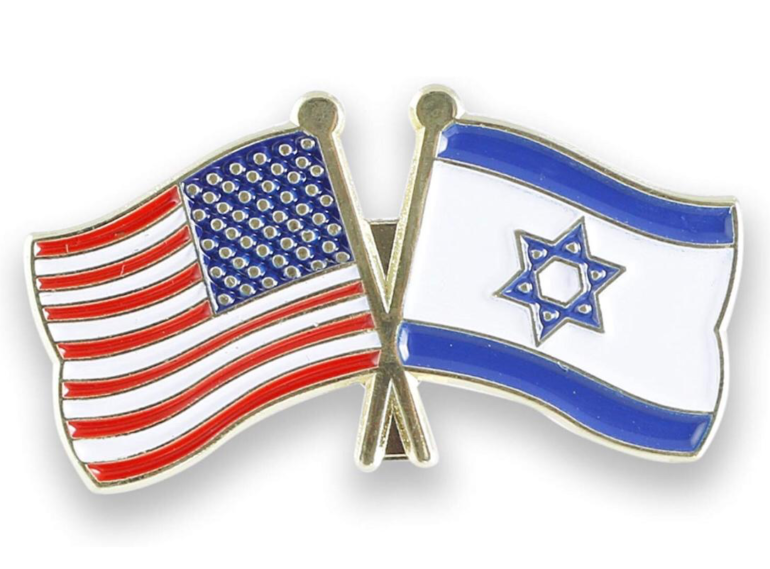With the AIPAC Policy Conference taking place, I would like to remind my fellow Jews spending these days in Washington, D.C. of one of our people’s most ancient Talmudic sayings (from Tractate Megilla 6a):
If you hear that Caesarea and Jerusalem are both in ruins or that both are flourishing peacefully, do not believe it. Believe only a report that Caesarea is in ruins and Jerusalem is flourishing or that Jerusalem is in ruins and Caesarea is flourishing.
During the Roman occupation of our land, the now quaint and picturesque seaside town of Caesarea served as the Roman administrative center of Judea. To our sages, Caesarea represented the Roman Empire (which later came to represent Western civilization), while Jerusalem represented Hebrew civilization, along with our contrasting culture and unique vision for the world.
For our ancestors, Rome and Jerusalem symbolized competing national identities and philosophical world views that could not both co-exist in our land.
Jews in both the United States and Israel should remember this ancient warning of our sages when considering how much power and influence we allow Washington to have in the Jewish homeland.
Does AIPAC’s mission to “strengthen, protect and promote the US-Israel relationship” promote a healthy partnership that allows Israel to maintain its national independence and express our true values?
Or does AIPAC promote an unbalanced partnership that encourages Israeli dependence while stifling the Jewish people’s national aspirations?
In evaluating the existing US-Israeli relationship, I suggest looking at several of its important manifestations.
The United States gives Israel billions of dollars annually, the majority of which Israel must spend on purchases from the American defense industry. Does this aid make Israel stronger?
Let’s compare post-1970 Israel, when US money began to pour in, with pre-1970 Israel. In 1967, Israel defied Washington and acted decisively to preemptively strike Arab armies that were amassing for a fight. The nascent country’s stunning six day campaign liberated Jerusalem and many portions of the Jewish homeland. Yet a few short years later in 1973, Israel succumbed to US pressure to not take similar action when Arab armies again gathered on her borders. The country was nearly overrun and suffered high casualties in what became known as the Yom Kippur War.
Today, it is hard to imagine Israel taking the kind of bold and decisive initiative it took in 1967. Israel’s military activities are closely scrutinized by the United States, and its military campaigns require American approval and continual support.
Israel gives the United States a central role in resolving its conflict with the Palestinians. Does such a role, however, advance Jewish national interests or encourage unity and peace between Israelis and Palestinians?
In the late 1970s, Israeli Prime Minister Menaḥem Begin proposed a plan to resolve the Israeli-Palestinian conflict by extending full Israeli sovereignty to the West Bank and Gaza, and granting Palestinians the choice of autonomy or Israeli citizenship. This bold plan could have resolved the conflict decades ago in a way that honors authentic Jewish aspirations of sovereignty over the land of Israel, and promotes human rights, justice, and equality for Palestinians.
But the US administration, then under President Jimmy Carter, flatly rejected this proposal and prevented it from ever taking flight. Instead, the Carter Administration, and subsequent American administrations, have pushed the creation of a Palestinian state inside Israel’s borders, empowered a corrupt and authoritarian Palestinian Authority, promoted the destruction of Jewish communities and encouraged the forced segregation of Israelis and Palestinians.
Another important manifestation of the US-Israel relationship is the perception it creates of Israel as a western outpost in the Middle East. Is this perception healthy? Accurate? Should Israel be an extension of American power and values? Is it fair for us to expect the Palestinians, as well as the broader Arab world, to embrace a western outpost? Moreover, is this our true identity? Have the Jewish people strived for thousands of years to return to the land of Israel in order to be America’s 51st state? Or do we have our own unique identity and values to share with the world?
On a deeper level, this last aspect perhaps goes to the heart of the problematic nature of the existing US-Israel relationship. One of the Jewish people’s foundational beliefs is to revive Jewish civilization and rebuild a nation in our land that will lead humanity into a global era of universal peace – not by suppressing difference or by encouraging uniformity – but by bringing into harmony the full expression and range of human diversity in thought, culture, religion, national identity, etc.
This outlook is radically different from the West’s current model of establishing a world order based on shared Western values, economic interests, and general conformity. The Western approach certainly has an important role to play, but, as our prophets and sages warned, when it comes to the land of Israel, we must show the world a different way.
As we find ourselves in another AIPAC policy conference, it is our duty to reflect on the US-Israeli relationship and its impact on Jewish liberation and identity. Are AIPAC’s efforts to create a space where American Jews can feel comfortable being both patriotic Americans and nationalistic Jews intellectually honest? Does AIPAC promote a healthy US-Israeli relationship? Can Caesarea and Jerusalem both flourish in the land of Israel? Or is there a fundamental conflict of interests between Washington and the Jewish people that AIPAC has been encouraging American Jews to avoid confronting?





